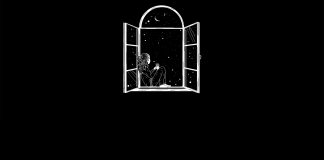What to tell your children about Santa Claus
I’m not sure if there was ever a time when I thought Santa Claus really existed. I never came across him directly during my childhood. However, I remember wondering, while looking at the pictures from my brothers’ Christmas parties, whether any of the children, smiling at the photographer from Santa’s lap, ever wondered how real his story was, with so many incongruous and...
Three times the world nearly ended
Many doomsayers have “cried wolf” when it comes to the end of the world. Does that mean it’s not going to happen at all?
A visit to Narnia
On the 22nd of November 1963, global attention was captured by the tragic assassination of American President J.F. Kennedy. On the same day, the death of one of the most influential Christians of the 20th century, the British writer and apologist C.S.Lewis, went almost unnoticed.
People get ready
The song, “People Get Ready” was inspired by Martin Luther King Jr’s march on Washington and his “I have a dream” speech. In writing it the following year (1964), Curtis Mayfield not only captured the spirit of the march but created a song that caught the mood of the times and injected hope: “There’s a train a-comin’… . You don’t need no ticket,...
The road forwards that actually goes backwards
I am visiting two sick people who share the same terminal illness. Their suffering is increased by the fact that they are brothers and that a mother’s broken heart lies at the core of it all. One of them is a businessman. The other, a servant of the altar. Their mother’s greatest frustration is that her wish to take some of the suffering...
Under the shadow of the pandemic: was 2020 really the worst year in history?
Peering through the dust settling from the chaos of last year, we are trying to see into the unknown of the coming year, hoping for the best. Irrespective of what our hopes for 2020 were, our expectations for 2021 seem to centre on things going back to normal.
Bewilderment
Jesus’s unpredictability is one of His most memorable traits—one that was, however, not born out of an extraordinary speculative intelligence, but out of such a different perspective on reality that even the most trained and educated thinkers could not foresee it. Therefore, Jesus’s unpredictability says more about us than about Him.
More than stardust | Grandparents and their spiritual heritage
"Children are not a distraction from more important work. They are the most important work.” (Dr John Trainer)
Sometimes I pass my grandparents' house, which...
From martyr to student, or how to be a superficial viewer
It is said that the intelligent and cynical Talleyrand, a French diplomat and Catholic priest who was later secularised, said to Napoleon when asked to devise a political message: "Sir, give me the idea and I'll find the arguments myself..." If such an intellectual attitude is cynical and unscrupulous in politics, let's imagine the consequences in the religious sphere.
Five lessons from the life of Dietrich Bonhoeffer
It takes a brave man to stand up to a dictator and perhaps an even braver one to stand up to his church. Dietrich Bonhoeffer has been held up as a hero of the cause of justice and equality, and a statesman of modern Christian theology. For some readers, these two things might not seem a natural fit. But for Bonhoeffer, the two...
I’m the only one who can solve my problems: True or false?
The problems that arise in our lives are nothing more than cognitive obstacles that we don't immediately have the skills to overcome. The most important question when we get stuck is: do I ask for help or do I solve my problems myself?
Is that you, God?
Christians believe that God speaks to people. But what does God sound like? Learning to recognise the difference between God’s voice and the myriad of other voices in your head takes much patience and practice. But it is possible!
COVID-19: What if we received bad news in a void?
What if there was no good news to give us confidence that we could get through the troubles facing us now? What if there was no good news to assure us that we are cherished, loved and supported, that we are not alone?
The social media trap
Two recent stories in Australian media shocked me to my core. Two 12-year-olds in different states took their own lives after being bullied at school.
Difficult conversations | How do we talk about death with our children?
Talking to your children about death can be an act of love. You can't take away their pain with a simple conversation, but you can give them something just as important: truth wrapped in gentleness, the reassurance and relief that they are not alone in their grief, and even the hope that sees beyond the loss.


























